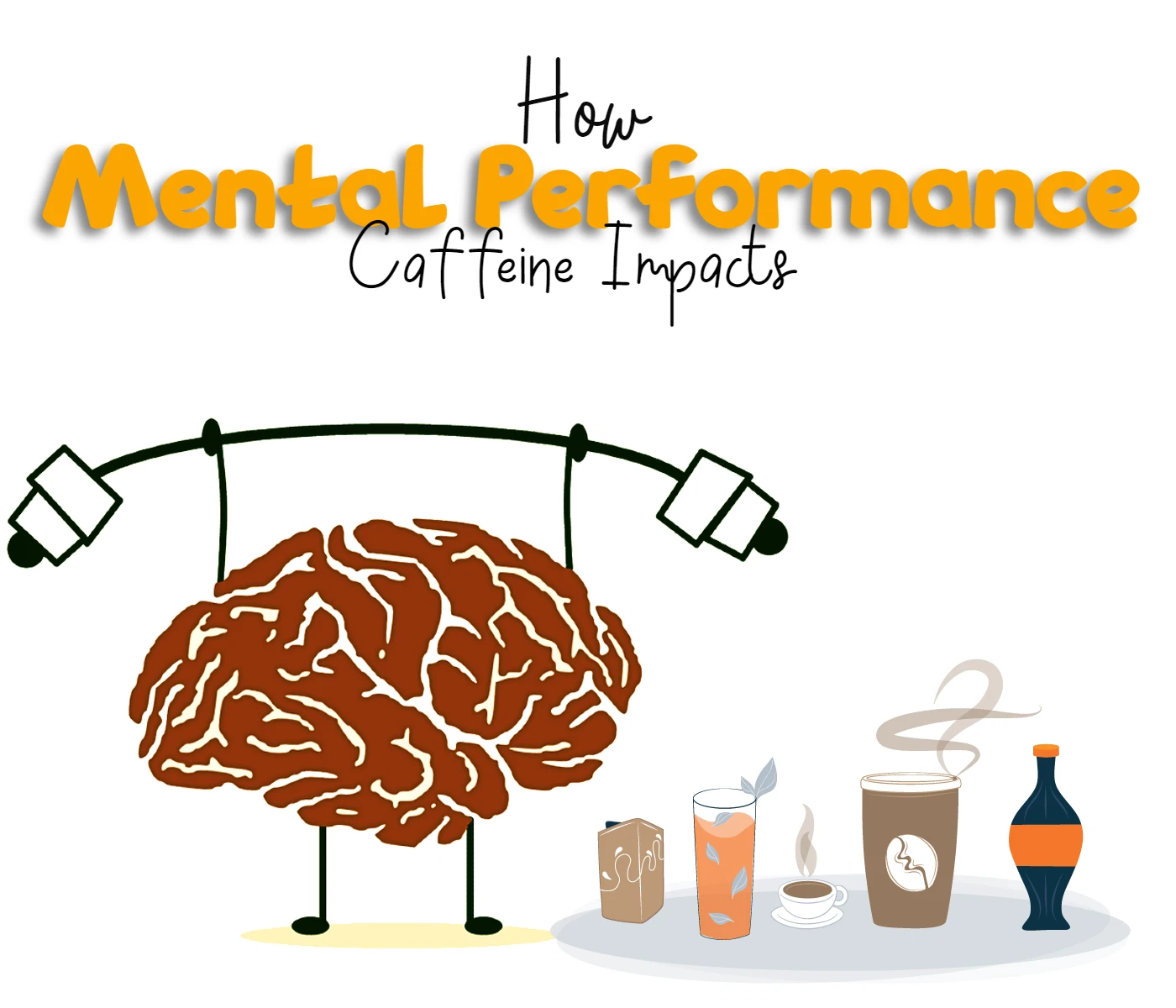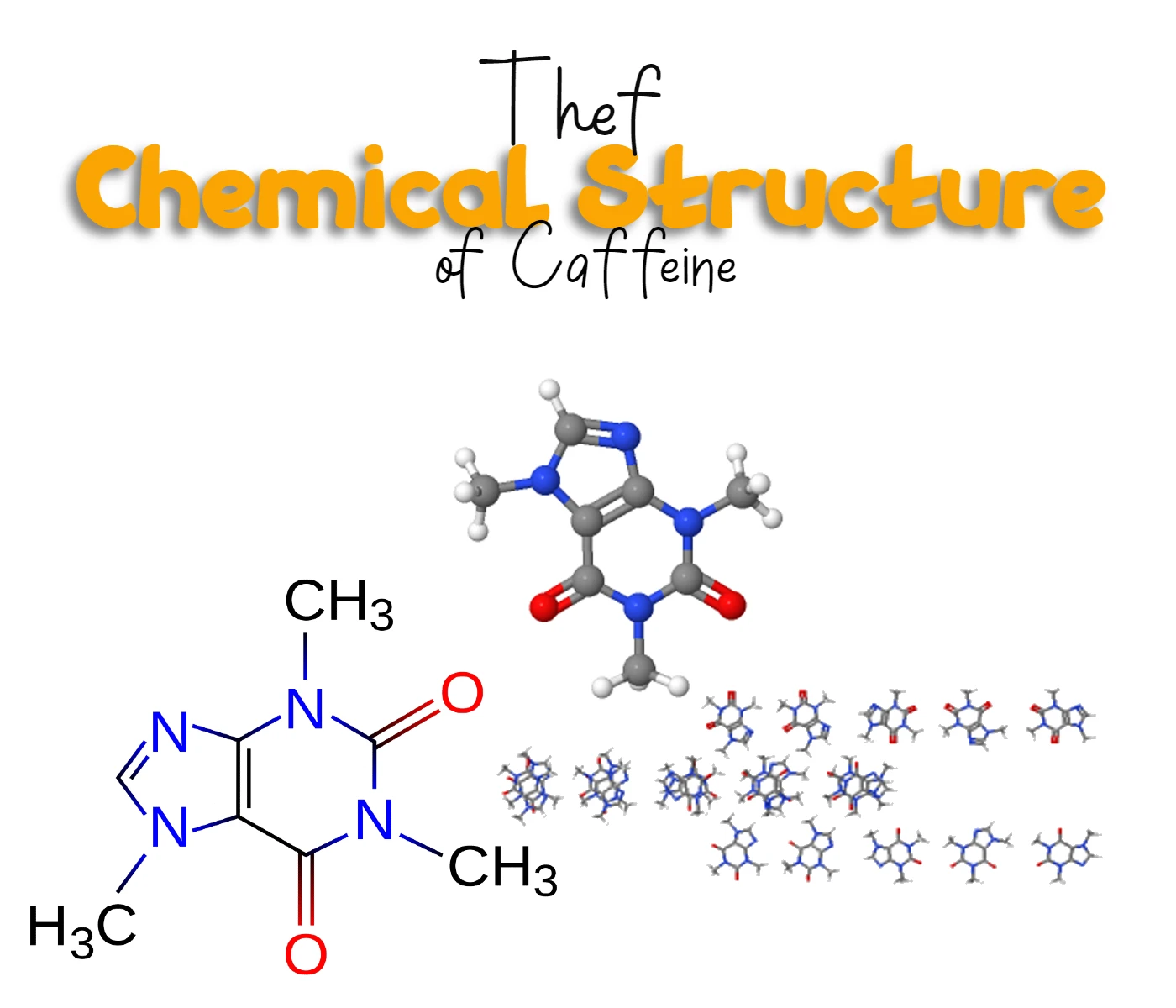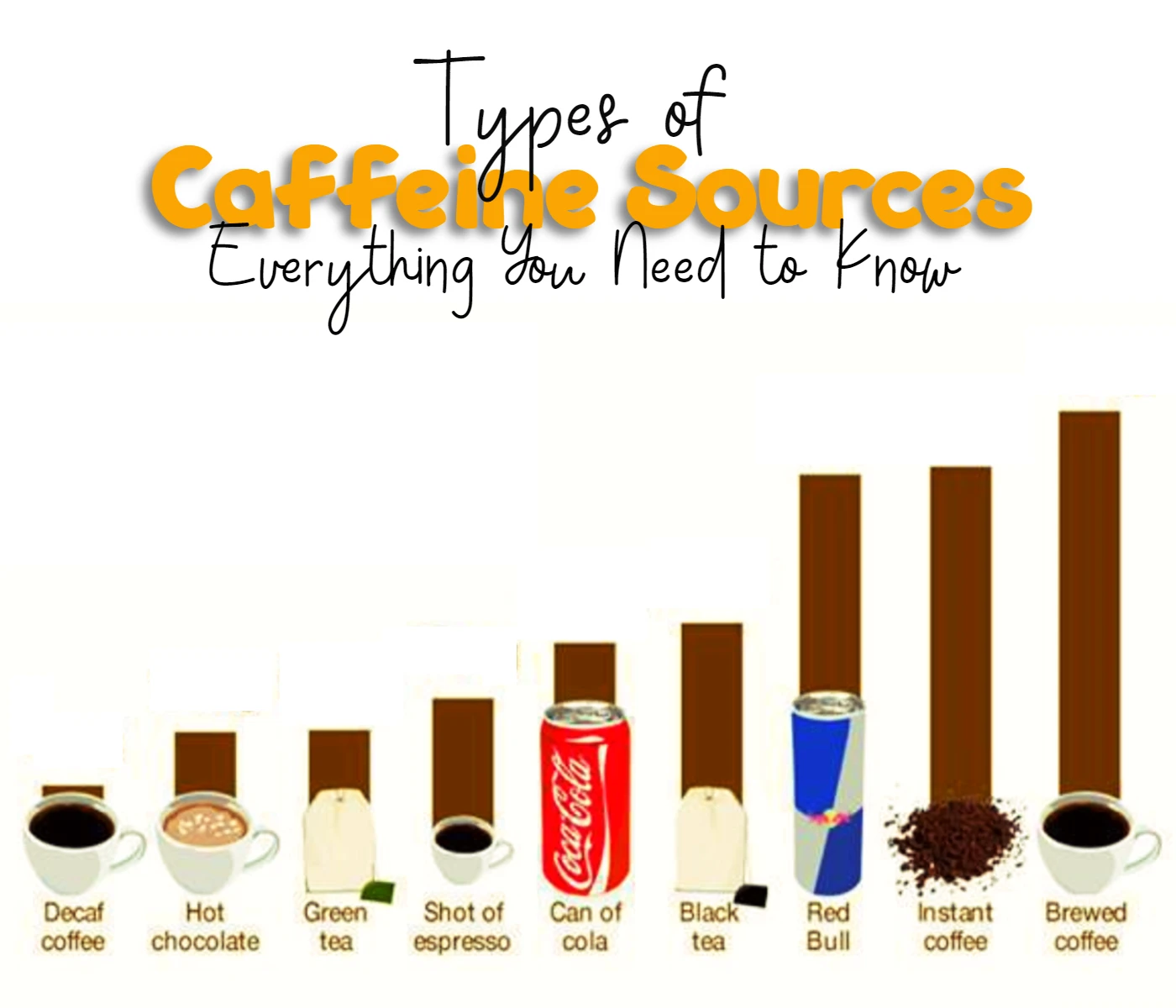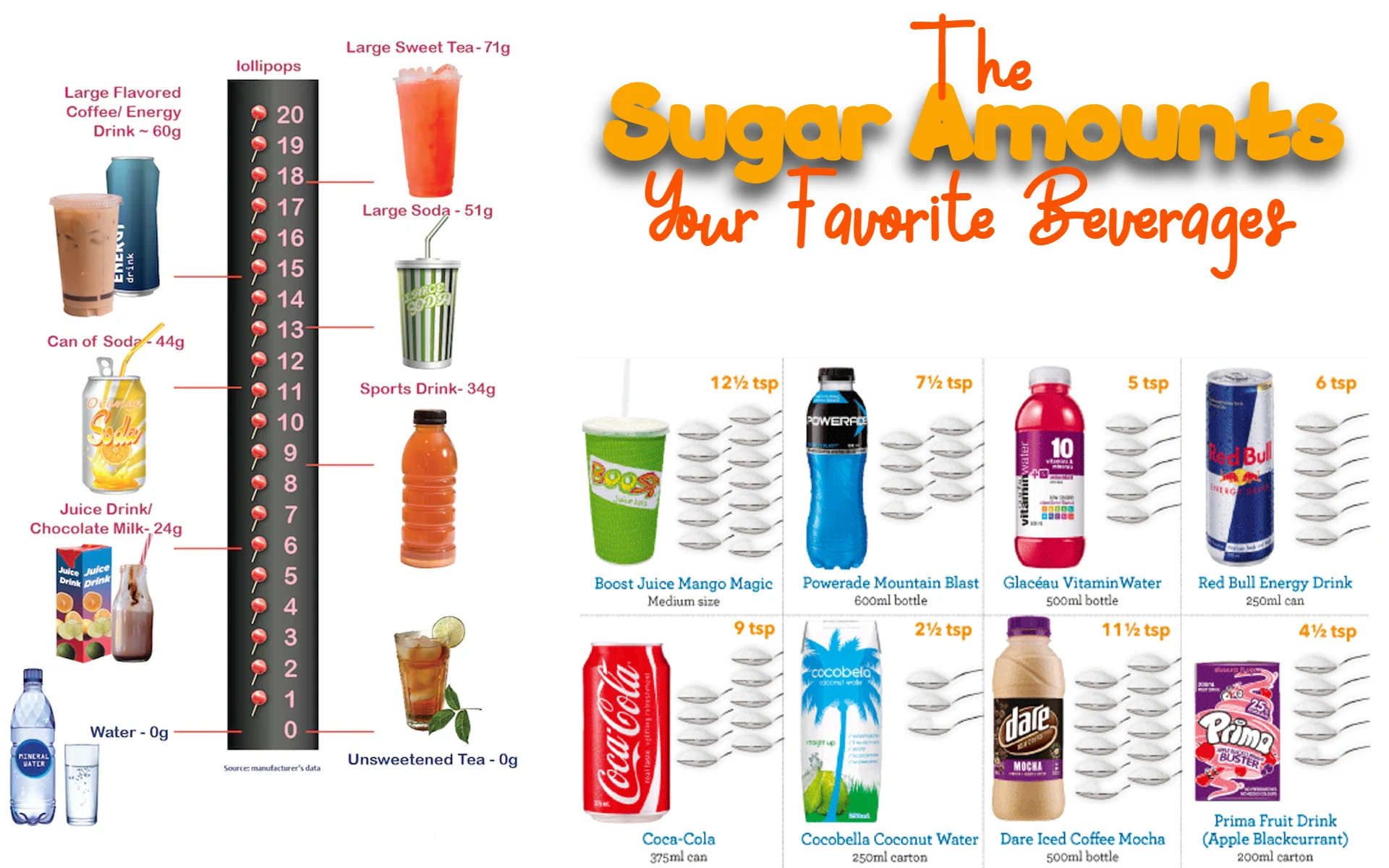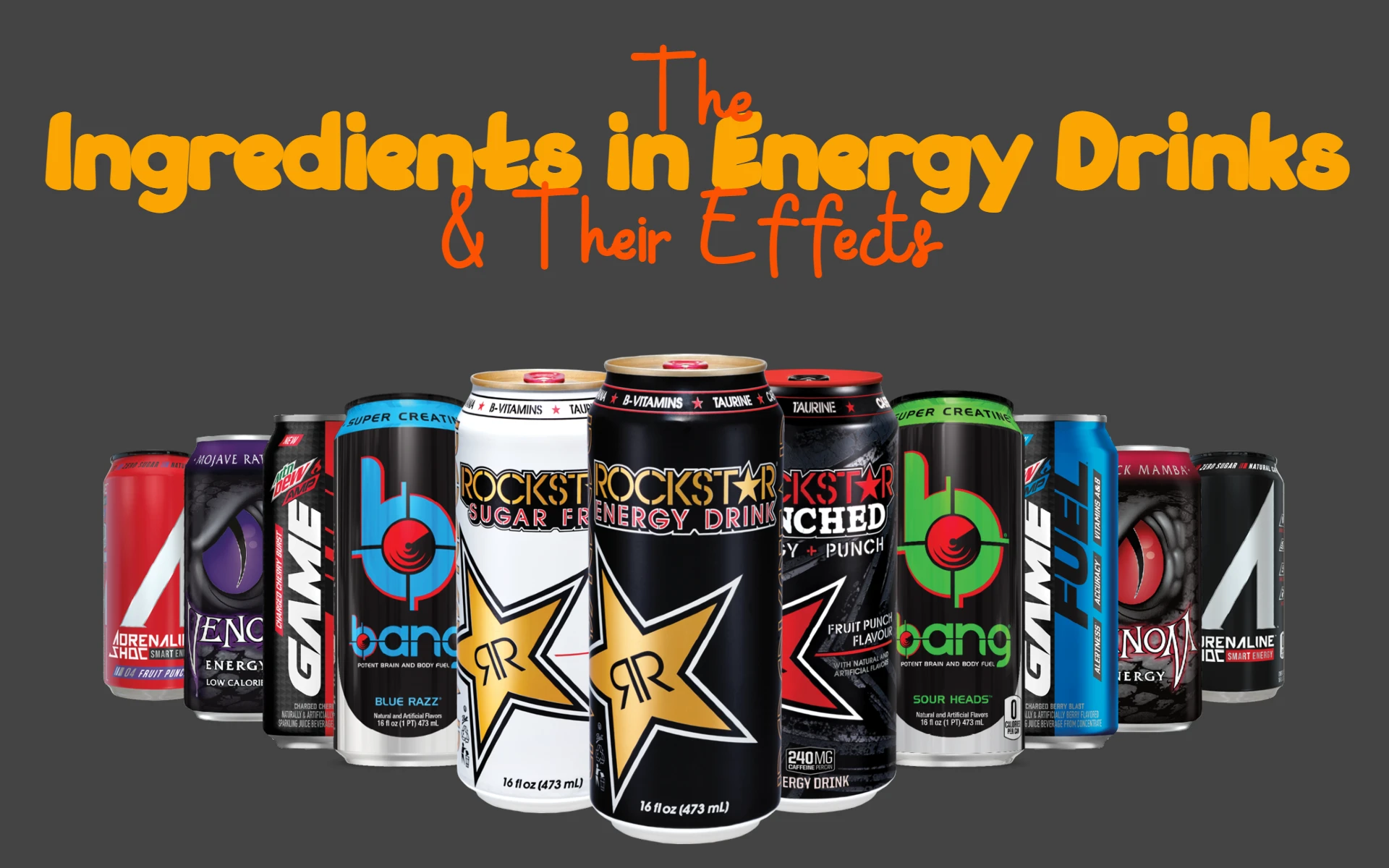📰 Articles on caffeine
-

Caffeine and Mental Performance
Are you a caffeine junkie looking to boost your brain power? Or perhaps you're simply curious about the connection between caffeine and mental performance. Either way, you're in the right place! In this blog, we'll take a closer look at the latest research on how caffeine affects the brain, and how it may impact attention, memory, and overall cognitive function. We'll also examine any potential age-related differences in response to caffeine, so you can understand how your brain may be impacted. Whether you're a coffee addict or just looking to optimize your mental performance, you won't want to miss this informative and engaging read. So grab a cup of joe and settle in for a journey into the fascinating world of caffeine and mental performance!
-

Chemical Structure of Caffeine
Caffeine is a naturally occurring compound found in many common foods and beverages such as coffee, tea, and chocolate. With its stimulating effects on the central nervous system, caffeine has become a staple in the daily lives of many people. But what is caffeine exactly, and what makes it so effective at keeping us awake and alert? In this guide, we'll explore the chemical structure and properties of caffeine in a friendly and approachable way. We'll discuss its effects on the body, its uses in medicine and industry, and much more. So grab a cup of coffee and let's dive into the world of caffeine!
-

Types of Caffeine Sources
If you're like most people, you probably rely on caffeine to get you going in the morning or to help you power through a long day. But do you know where your caffeine is coming from, or how much you're consuming? In this blog, we'll explore the different types of caffeine sources, from your morning cup of coffee to energy drinks and supplements. We'll take a closer look at how much caffeine each source contains, as well as the potential benefits and risks associated with consuming too much caffeine. So, whether you're a coffee lover, an energy drink addict, or just someone who wants to be more informed about the caffeine you're consuming, this blog is for you.
-

The History of Caffeine
Come on a journey with us to discover the intriguing and often surprising history of caffeine. We’ll travel from prehistoric times to the modern day coffee house, exploring the many twists and turns that have led to caffeine becoming one of the most beloved compounds on earth. From ancient legends of Chinese emperors to the dawn of the coffee trade, we’ll take a deep dive into the origins of caffeine and the many ways it has been enjoyed throughout history. Whether you're a coffee lover, tea enthusiast, or just fascinated by the many ways humans have interacted with the natural world, you won’t want to miss this thrilling exploration of caffeine and its incredible history.
-

Caffeine and Cancer: What You Need to Know
Caffeine and cancer are topics of interest for many individuals who consume caffeine on a regular basis. With conflicting information about the impact of caffeine on cancer risk, it’s important to understand the factors involved in determining risk. The key to understanding caffeine and cancer risk lies in the type of cancer in question, the source of caffeine, and other lifestyle factors that may influence risk. For most types of cancer, research has found no link between caffeine consumption and increased risk. This is the case for cancers of the pancreas, endometrial, prostate, and breast. On the other hand, there is conflicting evidence regarding caffeine and lung cancer risk. Some studies show a decreased risk of lung cancer among heavy coffee drinkers, while other studies show no risk or a small increased risk with heavy coffee consumption. It’s important to consider the source of caffeine when determining risk. For example, drinking coffee and tea, which are rich in antioxidants and other beneficial nutrients, is a better choice than soda. With soda, you consume excessive amounts of sugar or artificial sweeteners and receive no nutrients for good health. Additionally, other lifestyle factors such as smoking may also contribute to the development …
-

Caffeine Health Benefits
Caffeine is one of the most widely consumed psychoactive substances in the world, with millions of people relying on it for a quick energy boost every day. But beyond its ability to improve alertness and wakefulness, there is growing evidence to suggest that caffeine has a number of other health benefits as well. This article will explore some of the most compelling health benefits of caffeine, and explain why incorporating caffeine into your daily routine could be an excellent choice for maintaining and improving your overall health. One of the most well-known benefits of caffeine is its ability to improve cognitive performance and mental alertness. Studies have shown that caffeine can improve working memory, reaction time, and focus, making it an excellent choice for anyone who needs to stay alert and productive throughout the day. Additionally, caffeine has also been shown to improve mood and reduce feelings of fatigue, making it a great option for people who struggle with depression or anxiety. Another area in which caffeine has shown significant benefits is in the realm of physical performance. Caffeine is well-known for its ability to enhance athletic performance by increasing endurance, power, and strength. But beyond these performance-enhancing benefits, caffeine …
-

Sugar Amounts in Your Favorite Beverages
Sugar Amounts in Soda, Energy Drinks, Coffee, and Tea Beverages Sugar is often added to caffeinated beverages to improve flavor and balance out the bitter taste of caffeine. However, consuming too much sugar in drinks and other foods can lead to various health problems. This article will explore the sugar amounts in popular soda, energy drinks, coffee, and tea beverages and the health concerns associated with excessive sugar consumption. Soda Beverages Soda is one of the most popular drinks in the world, but it is also one of the largest sources of added sugar in our diets. A single 12-ounce can of soda contains up to 39 grams of sugar, which is equivalent to 9.75 teaspoons of sugar. This amount exceeds the recommended daily limit of sugar consumption set by the American Heart Association for both men and women. Soft DrinksServing Size (fl oz)Sugar (g)Tropicana Twister Soda2087.5Sprecher Cherry Cola1654Kickapoo Soda: Joy Juice & Fruit Shine1248Mello Yello1247Ski Soda1246.5A&W Cream Soda1246A&W Root Beer1246Bawls1646Mountain Dew1246Mountain Dew Code Red1246Mountain Dew Live Wire1246Mountain Dew Voltage1246Barqs Red Creme Soda1245Ruby Red Squirt1245Sun Drop Soda1245Barqs Root Beer1244Fanta1244Mountain Dew Baja Blast1244Mountain Dew Major Melon1244Sunkist Orange Soda1244Faygo Cola1243.5Mug Root Beer1243Orange Crush1243RC (Royal Crown) Cola1243Cheerwine1242Coca-Cola Cherry1242Coca-Cola Vanilla1242Shasta Cola1242Wild Cherry Pepsi1242Dr. Pepper1241Pepsi1241Pepsi …
-

Iced Coffee Caffeine Content
Iced coffee is a refreshing and popular beverage that is enjoyed by many people around the world. It is made by brewing hot coffee and then refrigerating it until it is cold, or by brewing coffee directly over ice. One of the main reasons people choose iced coffee is because of its refreshing taste and ability to provide a boost of energy. The cold temperature also makes it ideal for drinking on hot days, as it helps to cool the body down. When choosing an iced coffee, there are several factors to consider. One is the type of coffee used, as different brands and blends can have varying degrees of flavor, strength, and caffeine content. Additionally, some iced coffee drinks contain added sugars and other ingredients, such as syrups or whipped cream, which can affect the overall taste and calorie count. It is important to read the label and ingredient list to determine the sugar content and other factors. There are many well-known brands that offer iced coffee, including Starbucks, Dunkin’ Donuts, and McDonald’s. These brands offer a variety of options, from classic iced coffee to flavored and blended drinks. Each brand also offers different sizes and strengths, so it …
-

Ingredients in Energy Drinks and Their Effects
Energy drinks have become a popular alternative to traditional coffee and soda beverages. They contain a variety of ingredients, such as caffeine, sugar, vitamins, and herbs, that are marketed to provide a boost of energy and improve mental alertness. However, not all of the ingredients in energy drinks have been extensively studied, and some have raised concerns about their safety and potential health effects. One of the primary ingredients in energy drinks is caffeine, which is a stimulant that can improve mental alertness, focus, and physical performance. However, excessive caffeine consumption can lead to side effects such as jitters, rapid heartbeat, and sleep disturbances. Energy drinks also often contain large amounts of sugar, which can contribute to obesity, tooth decay, and other health problems. Artificial sweeteners, such as aspartame, are sometimes used as a sugar alternative in energy drinks, but they have also been associated with potential health risks. In addition to caffeine and sugar, energy drinks often contain a range of vitamins, minerals, and other ingredients that are marketed to have various health benefits. For example, some energy drinks contain B vitamins, which are important for energy metabolism and brain function. Others contain ingredients like ginseng, ginkgo biloba, and …
-

Sensitive to Caffeine
Caffeine Sensitivity: An Overview Caffeine is a popular stimulant that impacts the central nervous system. It is produced naturally in plants such as cocoa beans, kola nuts, coffee beans, tea leaves, and other substances. Caffeine sensitivity refers to an individual’s unique response to caffeine, which can range from normal to hypo- or hypersensitive. The dose of caffeine required to experience symptoms varies depending on individual factors such as weight, tolerance, and overall health. Caffeine Sensitivity is a term used to describe the varying ways in which people react to the consumption of caffeine. Caffeine is a central nervous system stimulant that can have different effects on different individuals, based on factors such as genetics, age, weight, overall health, and medication use. Caffeine sensitivity can range from being unable to tolerate even small amounts of caffeine to being able to consume large amounts without experiencing negative effects. People who are highly sensitive to caffeine may experience symptoms such as anxiety, jitters, rapid heartbeat, and insomnia after consuming even small amounts, while those with a lower sensitivity may be able to tolerate much higher doses without experiencing adverse effects. It is important to be aware of your own individual caffeine sensitivity and …
